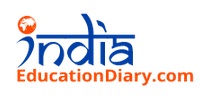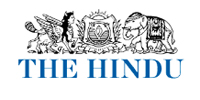The Leadership Programme on Global Challenges at Cambridge is a unique learning opportunity for anyone interested in enhancing their capacity to analyze, understand and help create solutions to some of the most challenging global issues of our day. This programme will focus on cutting edge thinking about problems related to the world economic system, global climate change and health care delivery systems. Lectures and discussions will cover key concepts which can guide young researchers, students and others seeking to engage with these challenges which, by their very nature, cut across disciplines, borders and geographical locations.
This programme is taught by the faculty and staff from University of Cambridge. The University is ranked at the top of Moody's global leagues. The University of Cambridge and its affiliated institutions are home to 109 Nobel Laureates, 11 Fields Medalists, 7 Turing Award winners and 14 British Prime Ministers as students, alumni, faculty or research staff. The University of Cambridge is over 800 years old, and as the "Crown Jewel" of the city, has always attracted the brightest minds from all over United Kingdom and around the world, including: Isaac Newton, Charles Darwin, Stephen Hawking, Hugh Laurie, Emma Thompson, Francis Bacon, Ian McKellen or Alan Turing, Prince Charles, Pundit Nehru, S Ramanujan, Ernest Rutherford, Amartya Sen, Lee Kuan Yew, Rachel Weisz, Salman Rushdie, William Wordsworth.
Regardless of your academic discipline, major, or career choice, if you want to grow your personal capacity to contribute to sustainable solutions to these global challenges, come and attend the programme this February in University of Cambridge, UK. Your tutors will be Scientists, Economists, Archaeologists, Historians, Political and Social Scientists working at the University of Cambridge. These world class scientists, both experienced and recently graduated, will help you familiarize yourself with the underlying and interconnected physical, sociological and economic processes behind upcoming technologies, yet to be reported in newspapers and on internet blogs. An emphasis will be placed on understanding both the principal causes and the newest solutions to address global challenges. Participants can expect to leave the programme not only with new knowledge and skills, but also with an enlarged personal network of future leaders in the industry, academia and politics.
| Session | Start Date | End Date | Batch Status |
|---|---|---|---|
| SESSION A | Sunday, February 9th | Wednesday, February 19th, 2020 | Applications now closed! |

This Programme is organised by Comprehensive Capacity building in the Eastern Neighbourhood and Central Asia project under the Global Challenges Research Fund of the UK government, otherwise known as GCRF COMPASS project. Faculty and participants from GCRF COMPASS project teams at the University of Cambridge and University of Kent in the UK, and ADA University, Azerbaijan; Belarusian State University, Belarus; Tajik National University, Tajikistan and University of World Economic Diplomacy, Uzbekistan in partnership with BrainGain Academy in India will make this programme a truly unique experience.
COMPASS Cambridge is a programme which seeks to establish 'regional hubs of excellence' at the top-level Higher Education Institutions in Eastern Neighbourhood and Central Asia to enable them to become research leaders and 'nodes of excellence' for knowledge production and transfer across the region and beyond. Conceptually, the project explores new approaches to 'governance' with a focus on resilience, capacity-building, bargaining power, and cooperative orders, to make governance more effective and sustainable.
BRAINGAIN ACADEMY:
BrainGain Academy is a global platform offering short-term, international cohort-based learning programs on college and university campuses. Our university partners include University of Cambridge, the Wharton School, University of Pennsylvania, Arizona State University, and Dutch Academy for Film and Photography, to name a few. We offer these global learning experiences to pre-college, college students and young professionals. We curate, develop and market experiential learning programs in partnership with leading global universities to offer new ways of learning for students.
The Leadership Programme on Global Challenges at Cambridge is designed to include seminars and one-on-one interaction with leading experts in their fields.
Participants of The Leadership Programme on Global Challenges at Cambridge will have the opportunity to balance classroom lectures with group work and extracurricular activities on and around the historical campus. The programme will provide hands on experience that is made available to students.The vibrant and innovative environment at Cambridge will inspire all those who attend this programme and give them the confidence to explore new and exciting ideas.
|
Leadership Program
|
Benefits
|
Campus and British Culture Experience
|
|
Prof Gil Lonzarich, Department of Physics, FRS, Cavendish Labs, University of Cambridge Lonzarich received his BA degree from University of California, Berkeley as a Regent's Scholar (1967), his M.S. from the University of Minnesota as a Corporate Fellow (1970) and his Ph.D. degree from University of British Columbia as a Killam Fellow (1973). Starting as a postdoc in 1974 he rose through the system to become a full professor of Condensed Matter Physics in 1997 at the Cavendish Laboratory, University of Cambridge. He was elected a fellow of Trinity College, Cambridge and has taught there since 1978. Important aspects of the experiments of Lonzarich's group are crystal growth, ultra-low temperatures (mK temperatures), high-pressure experiments, and quantum oscillations.
He has be honoured internationally, some key highlights are; Yamada Visiting Fellowship, 1986, Mott Lecture, Institute of Physics, 1987, Europhysics (Hewlett-Packard) Prize for Experimental Physics, European Physical Society, Nice, 1989, Election to the Royal Society of London, 1989, Election as Fellow, Institute of Physics, 1991, The Max Born Prize and Medal for 1991, The Guthrie Medal, Institute of Physics, 2007, The Rumford Medal, the Royal Society of London, 2010, Visiting Fellowship National Council for Scientific and Technological Development (CNPq), Brazil, 2013-2017, 2015 Kamerlingh Onnes Prize, The International Conference on the Materials and Mechanisms of Superconductivity (M2S).
After qualification at Cambridge and University College, London, He worked in London for the Shankland Cox Partnership on housing and for Colin St John Wilson and Partners on the British Library. On returning to Cambridge in 1973 he practised within Hughes and Bicknell Architects, where he became an Associate and later Partner, before founding Nicholas Ray Associates in 1989, which morphed into NRAP in 2007.
His most prominent buildings in Cambridge are the Quayside Development, on the banks of the river Cam opposite Magdalene College, and major additions to the Department of Chemistry. He has been responsible for new and refurbishment projects for numerous Colleges, as well as buildings and projects for the University and for private clients. His publications to date have concentrated on studies of 20th century architects (Alvar Aalto, 2005 and Rafael Moneo, 2015, both with Yale University Press), .
Shailaja Fennell is Director of Research at Cambridge Central Asia Forum, a University Senior Lecturer in Development Studies, and a Fellow of Jesus College. She was awarded her degrees of BA, MA, and MPhil in Economics from the University of Delhi, and then went on to read for her MPhil and PhD at the Faculty of Economics and Politics, University of Cambridge. Her doctoral research was on long term agricultural trends in India and China.
Shailaja was an international team leader on the project on public private partnerships in education within a research consortium on educational outcomes and rural and urban poverty (RECOUP) funded by the Department for International Development. She was a member of the team commissioned by the European Union to bring about the first European Report on Development, titled 'Overcoming Fragility in Africa: Forging a New Approach Forward' (2008-09).
He is Director of the Cambridge Central Asia Forum and Principal Research Associate at the Cavendish Laboratory. He trained as an anthropologist, historian and a physicist. His research interests are in the areas of religion and identity, knowledge systems, social and political development and institutional history in Central Asia and the Middle East. In Physics he works on science of strongly correlated electrons, superconductivity and magnetism. He also holds a Fellow Commonership at Jesus College, University of Cambridge. He also holds a number of Professorships, Honorary Professorships and Visiting Professorships.
His progress through school took him to Britain, France, Germany, Soviet Union and Switzerland. He went on to New Orleans to complete High School and proceeded to the University of New Orleans, where he studied Physics and History of Islam. He then studied Historical Anthropology of Islam in Khorassan. From the United States he came to Trinity College, Cambridge, on a Commonwealth Trust-Trinity Scholarship to study for a PhD in Physics at the Cavendish Laboratory. He then did Post-Doctoral training at the University of Groningen, in the Netherlands and University College London and a Research Fellowship at Girton College, Cambridge.
Sian Dutton is a Reader in Physics and Solid State Chemistry at the Cavendish Laboratory, University of Cambridge. Her research is focused on exploring the properties of materials for energy applications including batteries and solid state magnetic cooling. Prior to taking up the fellowship in 2012, Dr Dutton was a postdoctoral research associate in Princeton University. Dr Dutton completed her DPhil at University of Oxford and her MSci in Natural Sciences at Jesus College, Cambridge, where she is also a fellow and director of studies now.
Learn more about Dr Sian Dutton
Serial entrepreneur with over 25 years of experience in building and scaling companies globally, Harjiv is the founder and CEO of BrainGain Global, a technology-enabled international higher education marketplace for content, tools and programs. Harjiv has founded companies like Gutenberg, a digital integrated marketing firm and MDOffices.com, a New York city mobile healthcare start-up. He has a keen interest in international higher education, experiential learning technology, international relations, economics, history, and the impact of globalization. He is an Executive Fellow at Cambridge University, Independent Director, Indag Rubber Ltd., on the Advisory Board of Knowledge@Wharton, Trustee of The Loomba Foundation and on the Advisory Council of American India Foundation (AIF). Harjiv is currently part of Stanford Graduate Business School's SEED program. He received his Master's in International Affairs in Economic Policy from Columbia University and an MBA and a bachelor's degree in finance from New York Institute of Technology.
Dr Patricia Alireza an experimental physicist working on Quantum Matter. She has a BA from Occidental College in Los Angeles, an MS in physics from UCLA and a PhD in physics from the University of Cambridge. In 2010, she received an honorary Doctor of Science degree from Occidental College. She is also recipient of the L'Oreal-UNESCO for Women in Science Fellowship 2009-2010 and is a member of the board of Trustees of Occidental College.
She was born in Mexico City and moved to California as a young adult. Since then I have lived in Jeddah, Saudi Arabia; Paris, France; Pasadena CA, Cambridge and London in the UK, and have traveled extensively around the world. I believe that interacting with other cultures and ways of life is the best way to open up our minds and grow.
Lorena is a Lecturer in Economics at the School of Social Sciences & Global Studies in the Faculty of Arts and Social Sciences (FASS) at the Open University. She completed her PhD thesis in Economics at SOAS, University of London (fully funded by SOAS Economics dpt.) with a title 'A nexus between the role of the state, market transition and food consumption: The case of Uzbekistan'.
Before returning to academia Lorena worked as a development economist in Latin America in 2014, in Uzbekistan for the regional office of UNODC in Central Asia from 2010 to 2012, and between 2007 and 2010 with the European Commission and the Italian Ministry of Foreign affairs in the field of development economics, trade and environmental policy.
Post-Doctoral Researcher in the Department of Land Economy and Affiliated Lecturer at the Centre of Development Studies, Cambridge University. PhD & MPhil in Development Studies (Cambridge), MSc in Finance (London Business School) & MA in History & Economics (Oxford University). Over 20 years' experience as an Emerging Markets Fund manager. Research interests include agricultural commodity markets in Sub-Saharan Africa & South Asia - in particular cotton and millets. Other work includes analysis of Vocational Training for the Department for the Ministry of Skills and Development, India; assessment of the impact of Multinational employment in Sub-Saharan Africa for the International Labour Organisation; Entrepreneurship for Aid & Trade in Africa for the Templeton foundation; and work on Smart Villages Rural electrification in East Africa. Shortlisted as one of the top ten university lecturers by the Students' Union in 2017.
Learn more about Dr Richard Sidebottom
Dr. Kudaibergenova studies different intersections of power relations through realms of political sociology dealing with concepts of state, nationalising regimes and ideologies. Dr. Diana T. Kudaibergenova received her PhD in 2015 from the Department of Sociology at the University of Cambridge. Her first book, Rewriting the Nation in Modern Kazakh literature (Lexington, 2017) deals with the study of nationalism, modernisation and cultural development in modern Kazakhstan.
Dr. Kudaibergenova spent more than two years researching and teaching first sociology major students in Turkmenistan in English at the International University of the Humanities and Development in Ashgabat where she also helped to establish the first postgraduate Programme and Academic Writing classes. She has also held postdoctoral position at the Lund University Sociology of Law Department where she studied power, ideology and legality in Eurasia (primarily in Kazakhstan, Russia, Ukraine and Crimea).
Dr Asel Sartbaeva (University of Bath, UK) is a Royal Society University Research Fellow in Chemistry at the University of Bath. She received my MSc degree at the Kyrgyz-Russian Slavic University in 1999, and MPhil and PhD degrees at the University of Cambridge in 2002 and 2005. She has worked as a Postdoctoral Researcher at the Department of Physics in ASU from 2005 till 2007. In 2007, she was awarded a Samuel and Violet Glasstone Fellowship, and moved to the Department of Chemistry in Oxford. She was awarded a Royal Society University Research Fellowship in 2010, which she took up in January 2011. In 2012, she moved to the University of Bath to start her own research group. She now has an active group with multiple PhD and masters students, and post doctoral researchers working with her on projects related to functional materials. They focus on synthesis of functional porous materials, encapsulation of nanomaterials, thermal stability of biological substances and surface chemistry.
Mr Masaru Honma joined the EBRD in August 2002 as Director for Central Asia and Mongolia, based in London. Since then he had been an active member of CAREC Initiative, a main coordination body of Central Asian regional infrastructures. In May 2016 he was assigned to Director and Chief representative of the Tokyo Representative Office. He also covered Uzbekistan as head of the Tashkent Resident Office until September 2017. In April 2018 he retired from the EBRD and now works as Senior Visiting Researcher of the Policy Research Institute of the Ministry of Finance, Japan. After his graduation from Kyoto University, Mr Honma joined the Ministry of Finance of Japan where he dealt with economic policy, banking supervision, taxation and state property management. Later, he held various positions relating to transition economies, including that of a Councillor and Head of Economic Section at the Japanese Embassy in Hungary; Advisor to the Minister of Finance of Poland and Head of Outreach Unit for Financial Sector Reforms in the OECD. During the height of the Japanese banking crisis, 1998 to 2002, Mr Honma was engaged in financial supervision and bank rehabilitation including as Director for Banking Inspection Division and Chief Public Relations Officer of the Financial Services Agency and Director General in charge of strategic planning, budget and international relations of the Deposit Insurance Corporation. In spring 2014, Mr Honma assumed a position of Deputy Director General in charge of Communications and Information Disclosure, Ministry of Finance of Japan.
Mr Honma has published several books and numerous articles on banking supervision, international finance as well as on economic reforms in transition economies. His latest book is entitled Banking in Central Asia and Mongolia since 1875 (CSP 2019). Other titles include "Deposit Insurance and Bank Failure Resolution" (Toyo Keizai Publisher, 2002), "Financial Sector Developments in Eastern Europe and Russia" (Toyo Keizai Publisher, 1998), and “Economic Perspectives in Central and Eastern Europe” (Ministry of Finance, Japan, 1995).
Temur Yunusov obtained his BSc from the National University of Uzbekistan in Tashkent, focusing on a specific biochemical adaptation mechanism of Artemisia diffusa to drought and high salinity stress environments. After graduation he went to work under Dr Kristina Toderich at the Institute of Regional Problems, where he monitored the quality of soil and water in the Zerafshan river basin to investigate the impact these abiotic environmental factors had on the flora of the region.
Temur completed his PhD degree under Dr Matthias Landgraf, aiming to characterise a subset of interneurons involved in locomotion of Drosophila melanogaster larvae. During his studies he gained understanding and experience in diverse genetic expression tools available in the fruit fly to label, manipulate, characterise and catalogue individual neurons.
Temur is currently working as a laboratory manager with Dr Sebastian Schornack where he performs both administrative and research duties. His research focuses on studying cellular interfaces between plants and microbes during mutualistic (R. irregularis) and pathogenic (P. palmivora) interactions.
Dr Ronita Bardhan is University Lecturer of Sustainable Built Environment at the Department of Architecture, University of Cambridge, UK and leads the Sustainable Design Group. She holds visiting position at Stanford University and Indian Institute of Technology Bombay. She works on the niche sector of habitat design, energy decisions and gender equality for low-income housing in Global South, especially in the slum rehabilitation housing of Mumbai. Her tractable research informs demand-side design solutions which positively affects energy security, gender equality and well-being while entailing fewer environmental risks. She believes that data-driven design of built environments can effectively address sustainability. Through her research, she seeks for the transdisciplinary collaboration where she soft-couples building design, engineering with social science. She is the recipient of The Building Energy Efficiency Higher & Advanced Network (BHAVAN) Fellowship 2016-2017, USA and Charles Wallace India Trust Fellowship, UK in recognition of her work in building design and energy efficiency for low-income communities. Ronita has been awarded the Young Researcher Award 2012 and Exceptional Women of Excellence, 2019 by the Women Economic for her innovative contribution in the field of Sustainable Design and Urban Regeneration.

Participants applying for the Leadership Programme on Global Challenges at Cambridge must submit their application online and must be above 18 years old.
Note: Those applying from University of Cambridge, University of Kent, ADA Azerbaijan, BSU Belraus, TNU Tajikistan, UWED Uzbekistan, DO NOT submit by this link and contact pk315@cam.ac.uk
The fee excludes airfare and local travel cost to and from the airport, visa costs and international travel insurance. The fee includes:
The Leadership Programme on Global Challenges at Cambridge is a unique opportunity for anyone interested in engaging with global challenges requiring global solutions. This programme will focus on cutting edge thinking about problems related to the world economic system, global climate change and health care delivery systems. Lectures and discussions will cover key concepts which can guide young researchers, students and others seeking to engage with these challenges which, by their very nature, cut across disciplines, borders and geographical locations.
BrainGain Academy has collaborated with Cambridge COMPASS team to organize this international program. BrainGain Academy provides administrative support and the COMPASS team at University of Cambridge is wholly responsible for reviewing applications and providing all academic content for the program.
The programme is open for both domestic (UK) and international professionals and students who are at least 18 years and above.
The fee excludes airfare and local travel cost to and from the airport, visa costs and international travel insurance. The fee includes:
Unfortunately, there are no scholarships available for the program.
Yes, you will need to arrange your own international travel insurance as per the requirements of UK.
No, the Leadership Programme on Global Challenges at Cambridge is a non-credit program.
Participants applying for the Leadership Programme on Global Challenges at Cambridge must submit their applications online.
We have a rolling admission, and admissions are on a first-come, first-served basis, so applying earlier will increase your chances of acceptance. The last date to submit your application is 31st January 2020.
We welcome and encourage all participants over 18 to apply for this programme.
You will be informed in five working days after you submit your application.
You will be asked to provide a brief translation. This does not need to be professionally translated. You will be able to submit both the original and translated document to us with your application form.
No, flight tickets are not included in the fee. You will have to make individual travel arrangements.
Depending on the passport you hold; you may need to apply for a tourist visa. Check with the Embassy of UK in your country for more information. As a rule of thumb, you should give yourself ten business days for the visa to be processed. To apply for the Standard Visitor Visa, please click here
If required, we will provide each selected candidate with a visa invitation letter, which can be used to apply for the short-term visa. The visa invitation letter will be issued after receiving your payment and signed forms, but the letter does NOT guarantee successful visa application.
There are convenient bus and train services available from London to Cambridge, for information on bus services click here and for train click here
Your money will be refunded, with a deduction of GBP £150 / USD $195 as administration charges.
Nestled within the grounds of Churchill College in the University of Cambridge, and within easy strolling distance of the historic city centre and River Cam, the Moller Centre provides unrivalled four-star equivalent Cambridge accommodation. For more information, click here
Yes. The programme provides campus-wide wi-fi.
Lectures will be held at Westminster College, for more information about Westminster College, click here
 |
.png) |
Leadership programme on Global Challenges at Cambridge October 23, 2019 | The Pioneer |
 |
.png) |
Leadership programme on Global Challenges October 23, 2019 | The Tribune |
 |
.png) |
COMPASS Cambridge partners with BrainGain Academy to invite applications for their Leadership program on Global Challenges at University of Cambridge October 22, 2019 | India Education Diary |
 |
.png) |
COMPASS Cambridge partners with BrainGain Academy to invite applications for their Leadership program on Global Challenges at University of Cambridge October 22, 2019 | Easy Shiksha |
 |
.png) |
Why Indian Student Numbers in U.S. Are on the Rise After Three-Year Decline November 17, 2015 | WSJ |
 |
.png) |
Deportation, indelible blot September 11, 2016 | The Hindu |
 |
.png) |
That risky rush for a US degree January 20, 2013 | Business Standard |
 |
.png) |
Youth Need To Be Taught 21st Century Skills To Help Them Navigate Digital Disruption Facing All Industries: Harjiv Singh February 27, 2019 | Business World Education |